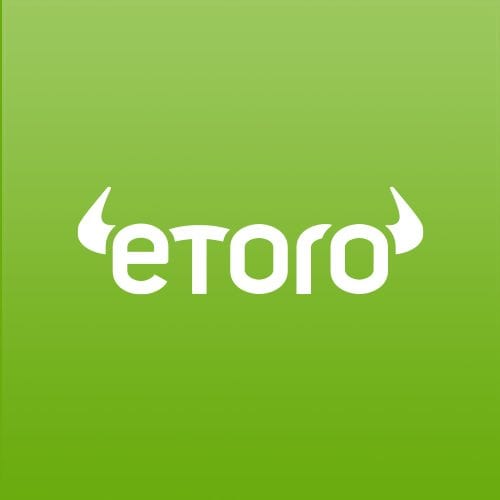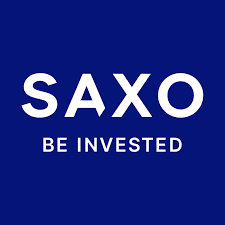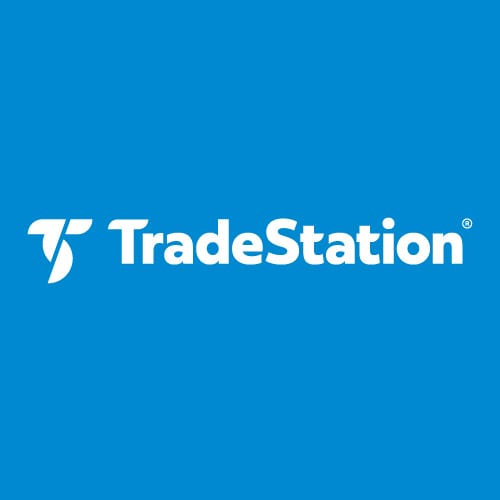Opening a business brokerage account is more complex than opening a personal account, but it can offer wealth management for your business. The account minimums are much higher than personal accounts and the approval process is lengthy, but it can be worth it for many business owners.
What Is a Business Brokerage Account?
A business brokerage account is an investment account, just like the brokerage accounts you may have for your personal assets. The only difference is that the business owns it, not the individual.
It can be any type of business that owns the account, such as a partnership, LLC, or corporation. You can invest in many of the same assets as an individual, including stocks, bonds, ETFs, cryptocurrency, and REITs.
The best business brokerage accounts for you are the ones that meet your requirements. Below, we’ve outlined the top 6 business brokerage accounts for most businesses.
6 Best Business Brokerage Accounts in 2025
1. Vanguard 
Vanguard is one of the largest investment companies in the US, with over 30 million clients and 5.6 trillion in assets. You can open a Vanguard business brokerage account, called an Organization Account, as a sole proprietor, partnership, LLC, or corporation.
You must deposit at least $3,000 and can invest in stocks, ETFs, options, bonds, and mutual funds.
Learn more:
2. eToro 
eToro is a popular brokerage firm that offers commission-free stock trades. It has over 25 million registered users, but they have a special process to open a business brokerage account.
First, you must have a personal eToro brokerage account. Then, you contact customer service to open a ticket and receive the application and checklist of documents they require. After they approve your business account, they’ll convert your personal account to a business account.
To open a business account with eToro, you must provide extensive documentation providing your business structure and finances. In addition, you must deposit at least $10,000 and can invest in stocks, ETFs, forex, and cryptocurrency.
Learn more:
3. Webull 
Webull is another commission-free brokerage; however, it’s a bit more complicated to open a business account with them, and they’re only open to LLCs. In addition, they don’t offer the option to open an account online, so you must email customer service to begin the process.
Webull has a hefty minimum deposit requirement of $100,000, and you can invest in stocks, ETFs, and options. A unique feature offered by Webull is Extended Hours Trading, which allows you to invest before and after the market opens and closes.
Learn more:
4. Saxo Bank 
Saxo offers 65,000+ financial instruments and has been in business since 1992. Like most brokerages, you must contact customer support to open a business account, and it can take up to a week for them to approve you.
Saxo Bank requires a minimum deposit of $100,000, and you can invest in stocks, ETFs, futures, forex, options, bonds, and commodities.
Saxo Bank has two higher-tier brokerage accounts that require $500,000 and $1,000,000 but offers lower trading prices, access to exclusive events, and access to financial specialists.
5. Charles Schwab 
Charles Schwab is one of the largest investment firms and offers commission-free trades on many assets. To open a business brokerage account at Schwab, you must deposit at least $250,000 and meet with a Schwab financial consultant. However you can download an application online, but it’s a complex process.
With Schwab, investors can invest in stocks, ETFs, CDs, mutual funds, bonds, and cash equivalents. Business customers also have access to 24/7 customer support.
Learn more:
6. Tradestation 
Tradestation offers business brokerage accounts, but their asset options are limited. TradeStation charges low fees but has many restrictions for business accounts, especially whose name the account is in. For example, for a partnership, the account must be in the partnership’s full name, as stated on the partnership certificate.
Choosing the Right Business Brokerage Account For You
Just like choosing a brokerage account for your personal use, there are certain factors you should consider when opening a business brokerage account.
Factor in Your Business Structure
Your business structure impacts how your investments affect you at tax time. For example, sole proprietors are taxed differently than LLCs. Your tax advisor can help you determine how your business structure affects your brokerage account and the right type of account to open.
Consider Must-Have Features
Think about the features you need in your brokerage account. For example, do you want automated investing, robo-advisor features, analysis tools, or checking account features? Then, consider the features you have in your personal investment accounts and decide which you want in your business accounts too.
Research and Choose Your Broker
You may not have as many business brokerage options compared to individual accounts, but enough brokerages offer business accounts. Therefore, it’s important to determine what you need from your accounts and what you can afford when choosing a broker.
Common things to consider include the following:
- Minimum balances – Many business brokerage accounts have minimum balance requirements. Make sure you choose a brokerage account with minimum balances you can meet.
- Fees – All brokerages charge fees, so shop around for the account with the most affordable fees. Some charge monthly, flat rate annual, or per-transaction fees. Know the standard and fine print fees and determine how they affect your bottom line.
- Features – Look for brokerage firms that offer the features you’re comfortable using. Whether you want automated deposits, user-friendly dashboards, or extensive research opportunities, ensure your brokerage has what you need.
- Support – Investing is serious business, and there’s a lot at stake when it’s your company’s money. Make sure the brokerage you choose offers the support you need to succeed.
Considering Potential Investments
Finally, consider the investments you want in your brokerage account and find a brokerage that offers them.
As you consider the investments you want, think about how much money you have to invest, how long you’ll invest the funds, and how much risk you can take. Also, consider the level of support and research they offer, especially if you’re new to investing.
How to Open a Business Brokerage Account
After you’ve chosen a broker, it’s time to open your business brokerage account using these simple steps.
- Determine if you can open the account online – Most business brokerage accounts can be opened online; however, not all do. So pay attention to the brokerage’s requirements to determine how to open the account.
- Gather your paperwork – No matter how you open a business brokerage account, you’ll need specific information, including:
- Name of your business
- Your business EIN and personal Social Security number
- Business structure documents
- Contact information
- Sign the disclosures – When you open a brokerage account, there are disclosures and acknowledgments you must sign. You can usually upload them to your account, but some brokerages might require original copies to be mailed to them.
- Fund your account – The final step is to fund your account. This requires linking an external bank account to send the funds to your brokerage account. You can also decide if you want to set up automatic investments at this time.
Frequently Asked Questions
Here are some of the most common questions about business brokerage accounts.
What are the tax implications of a business brokerage account?
The tax implications on business brokerage accounts depend on how you own the account. For example, if you have a pass-through business structure, the capital gains become a part of your income on your personal tax return. Your tax advisor can help you determine how your investments would affect your taxes.
Is there a minimum needed to open a business brokerage account?
Each business brokerage account has a different account minimum, ranging from $3,000 – $250,000 or more.
Can I legally invest in the stock market and trade with a business account through my company?
You can legally invest in stocks through your business if you have a business brokerage account. However, your business brokerage account must be approved by the brokerage firm, and the process to open an account may differ from a personal account.
Does Fidelity have an account option for corporate businesses?
Yes, Fidelity has brokerage accounts for corporations. However, most brokerages require extensive documentation and a more in-depth approval process.
Does Robinhood or Public.com offer business brokerage accounts?
Neither Robinhood nor Public.com offers business brokerage accounts.
Does E*Trade have investment accounts for businesses?
E*Trade has certain accounts for businesses, but you must apply by mail to get approved.
Can Oanda support a business brokerage account?
Oanda has business brokerage accounts, but only for forex and CFD trading.
How do I choose the best business brokerage account?
Business brokerage accounts have different nuances than regular brokerage accounts. Get to know the requirements and how to open one before choosing the account for you. It’s best to talk with your tax advisor, too, to ensure you open the account that makes the most financial sense.





No comments yet. Add your own